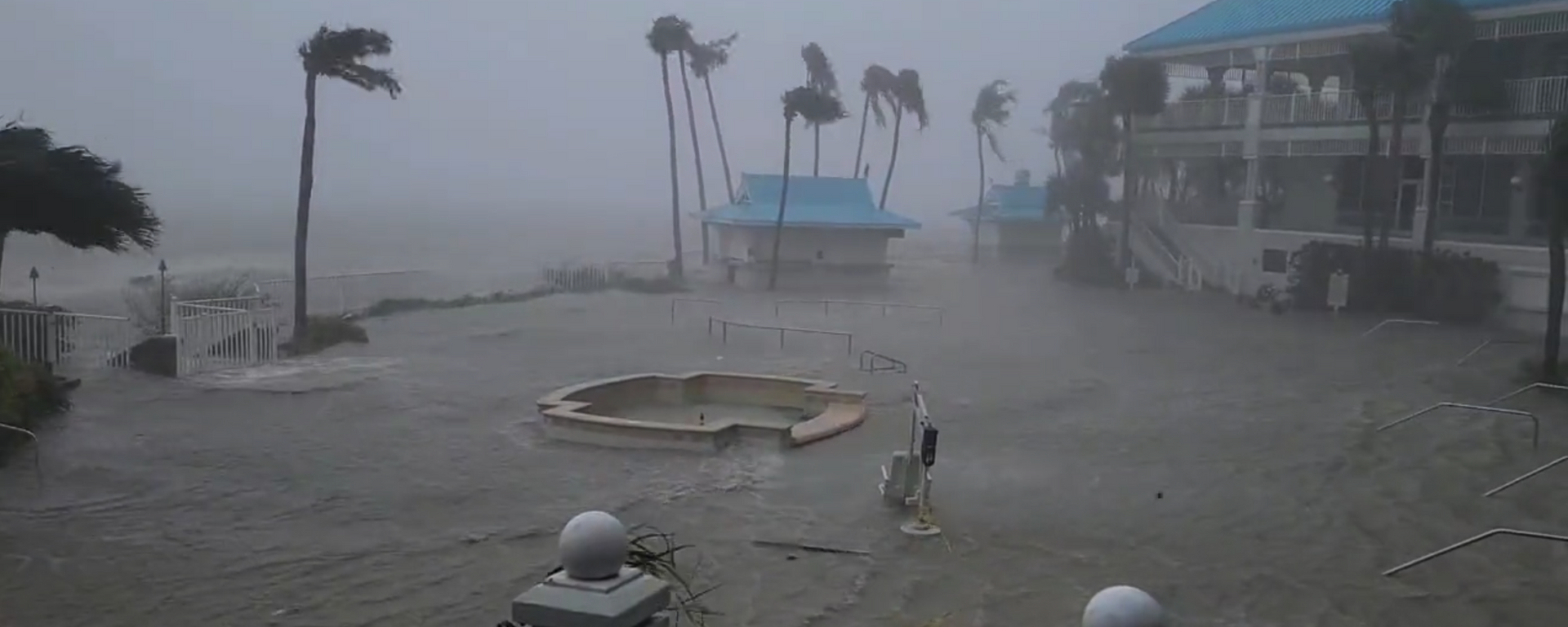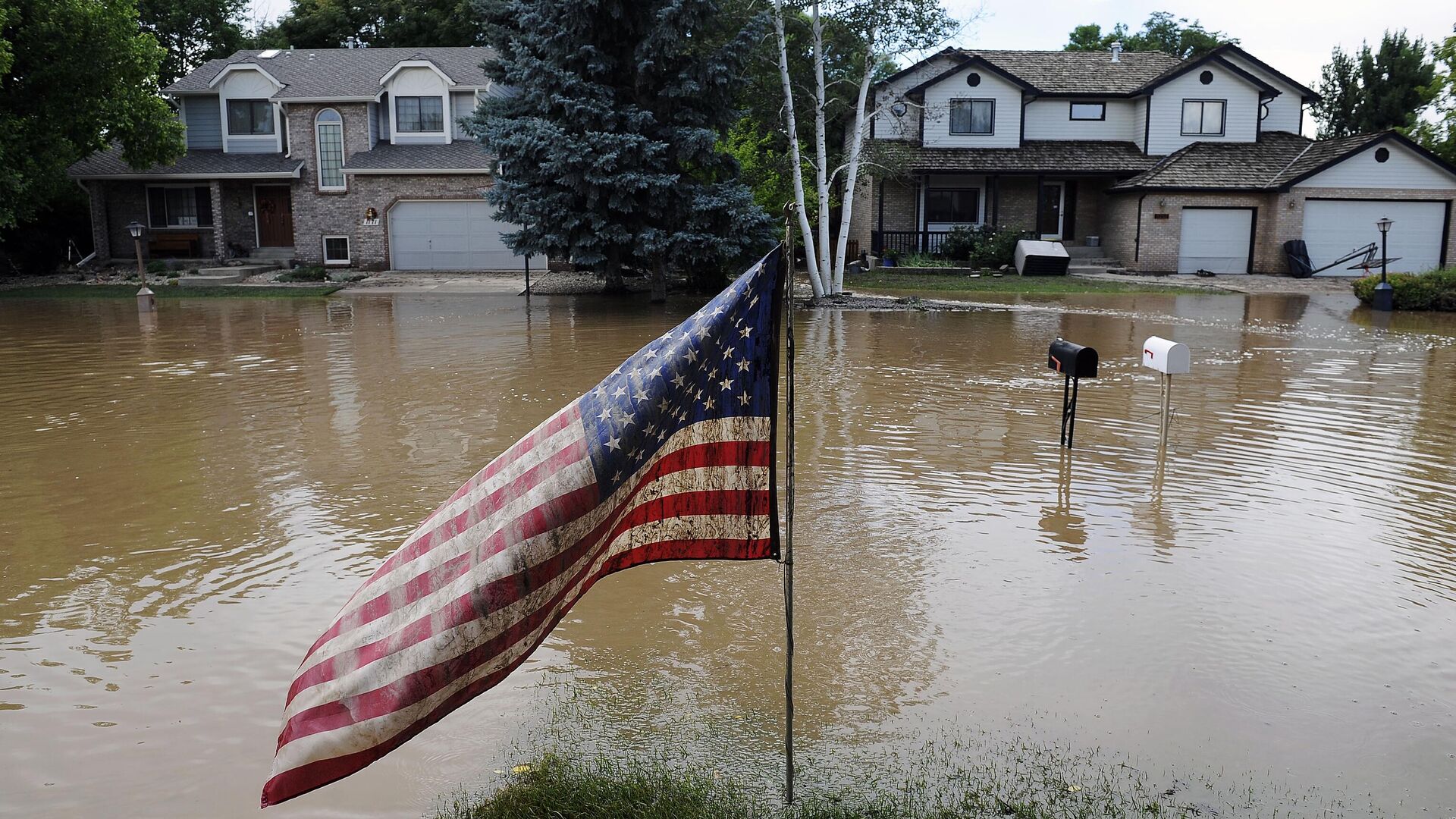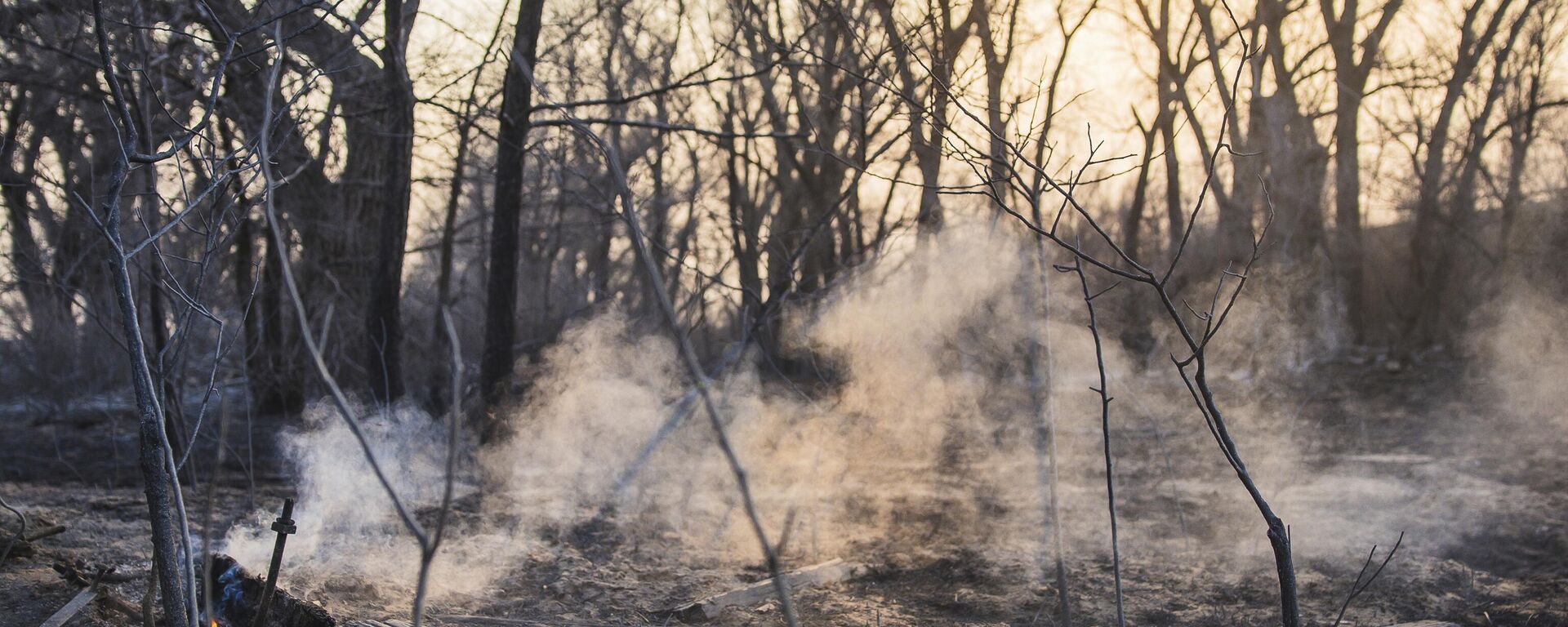https://sputnikglobe.com/20240317/half-of-us-homes-face-climate-change-threat-affecting-insurance-and-market-value---study-1117378423.html
Half of US Homes Face Climate Change Threat, Affecting Insurance and Market Value - Study
Half of US Homes Face Climate Change Threat, Affecting Insurance and Market Value - Study
Sputnik International
Last year it was reported that millions of American homeowners faced skyrocketing home insurance rates with some insurers even withdrawing coverage altogether, as more homes face climate change threats like wildfires and floods.
2024-03-17T05:47+0000
2024-03-17T05:47+0000
2024-03-17T05:50+0000
us
americans
california
kentucky
south dakota
climate change
us flooding
threat of flooding
floods
weather conditions
https://cdn1.img.sputnikglobe.com/img/07e8/03/11/1117378633_0:164:3059:1885_1920x0_80_0_0_5199c592bc872ec4d444e60061903bc1.jpg
A recent study has found that nearly half (44.8%) of all US homes are threatened by extreme weather conditions brought on by the impacts of climate change. Roughly $22 trillion worth of residential properties are at risk of “severe or extreme damage” from flooding, high winds, wildfires, heat or poor air quality, according to a report from Realtor.com.Such impacts will have an effect on home prices, will drive up insurance costs and even destabilize the broader housing market.This report follows one from last year in which an analysis from the non-profit First Street Foundation found that a growing risk of wildfire makes some real estate property in California essentially “uninsurable”. The analysis also found some US states that are more inland such as Kentucky, South Dakota and West Virginia are facing higher insurance costs due to an increase in extreme weather damage caused by climate change.The report from Realtor used data from First Street to estimate the number of homes facing potential climate damage, and focused its study on the 100 largest cities.Therefore, the report also found: 55% of homes, worth $3 trillion, face a severe or extreme risk from wildfires with more than a third (39%) of these properties in California. Nearly 7% of homes, worth $3.4 trillion are at a high risk of flooding and New Orleans holds the largest share of these homes. At least 9% of homes, worth $6.6 billion, face severe or extreme risks because of declining air quality.The report also found that over the next 30 years, 18% of homes will be at risk of damage from hurricane-strength winds, and that homeowners in 19 states and Washington, DC are now being asked to carry additional hurricane-related policies.A report from this past December released by First Street Foundation also found that about 3.2 million Americans moved due to an increasing risk of flooding. But at the same time, some of those areas also saw an increase in migration in the past two decades.The insurance industry has previously said that the frequency and severity of claims are on the rise, and it is making those companies more aware of where they would prefer to offer coverage and will increase insurance premiums.If an insurance company decides to drop a property, that home’s value could decline by 19% to 40%.
https://sputnikglobe.com/20231117/florida-battles-flooding-and-power-outages-following-storm-1115013441.html
https://sputnikglobe.com/20240229/wildfires-in-texas-grow-to-one-of-largest-in-the-us-states-history-1117049447.html
california
kentucky
south dakota
Sputnik International
feedback@sputniknews.com
+74956456601
MIA „Rosiya Segodnya“
2024
Mary Manley
https://cdn1.img.sputnikglobe.com/img/07e6/01/0b/1092187887_0:0:2048:2049_100x100_80_0_0_0c2cc4c84f89aff034cc55bb01fb6697.jpg
Mary Manley
https://cdn1.img.sputnikglobe.com/img/07e6/01/0b/1092187887_0:0:2048:2049_100x100_80_0_0_0c2cc4c84f89aff034cc55bb01fb6697.jpg
News
en_EN
Sputnik International
feedback@sputniknews.com
+74956456601
MIA „Rosiya Segodnya“
Sputnik International
feedback@sputniknews.com
+74956456601
MIA „Rosiya Segodnya“
Mary Manley
https://cdn1.img.sputnikglobe.com/img/07e6/01/0b/1092187887_0:0:2048:2049_100x100_80_0_0_0c2cc4c84f89aff034cc55bb01fb6697.jpg
us flooding, threat of flooding, floods, flooded us, us flooded, us flooding, flood in us, extreme weather conditions, weather conditions, extreme weather
us flooding, threat of flooding, floods, flooded us, us flooded, us flooding, flood in us, extreme weather conditions, weather conditions, extreme weather
Half of US Homes Face Climate Change Threat, Affecting Insurance and Market Value - Study
05:47 GMT 17.03.2024 (Updated: 05:50 GMT 17.03.2024) Last year it was reported that millions of American homeowners faced skyrocketing home insurance rates with some insurers even withdrawing coverage altogether, as more homes face climate change threats like wildfires and floods.
A recent study has found that nearly half (44.8%) of all US homes are threatened by extreme weather conditions brought on by the impacts of climate change. Roughly $22 trillion worth of residential properties are at risk of “severe or extreme damage” from flooding, high winds, wildfires, heat or poor air quality, according to a report from
Realtor.com.
Such impacts will have an effect on home prices, will drive up insurance costs and even destabilize the broader housing market.
"These natural disasters can destroy homes and communities," Realtor.com said in its
report. "Even properties that aren't directly affected by climate risks are being affected by higher insurance premiums—threatening potential sales and making homeownership increasingly more expensive."
This report follows one from last year in which an analysis from the non-profit First Street Foundation found that a growing risk of wildfire makes some real estate property in California essentially “uninsurable”. The analysis also found some US states that are more inland such as Kentucky, South Dakota and West Virginia are facing higher insurance costs due to an increase in extreme weather damage caused by climate change.
"You're talking about getting a letter in the mail that says somewhere between 60%, and as high as mid-80%, increases for policies," Matthew Eby, the CEO of First Street, said last year. "That is crippling. Absolutely crippling. And so those homes are not, from an investment scenario, something that you would invest in."

17 November 2023, 03:47 GMT
The report from Realtor used data from First Street to estimate the number of homes facing potential climate damage, and focused its study on the 100 largest cities.
Therefore, the
report also found: 55% of homes, worth $3 trillion, face a severe or extreme risk from wildfires with more than a third (39%) of these properties in California. Nearly 7% of homes, worth $3.4 trillion are at a high risk of flooding and New Orleans holds the largest share of these homes. At least 9% of homes, worth $6.6 billion, face severe or extreme risks because of declining air quality.
The report also found that over the next 30 years, 18% of homes will be at risk of damage from hurricane-strength winds, and that homeowners in 19 states and Washington, DC are now being asked to carry additional hurricane-related policies.
A report from this past
December released by First Street Foundation also found that about 3.2 million Americans moved due to an increasing risk of flooding. But at the same time, some of those areas also saw an increase in migration in the past two decades.
The insurance industry has
previously said that the frequency and severity of claims are on the rise, and it is making those companies more aware of where they would prefer to offer coverage and will increase insurance premiums.
If an insurance company decides to drop a property, that home’s value could decline by 19% to 40%.
"The changes that we're already seeing over these past two decades are already beginning to impact almost every major sector of our society," Jay Banner, a climate scientist and director of the Environmental Science Institute at the University of Texas at Austin, said
Wednesday.







